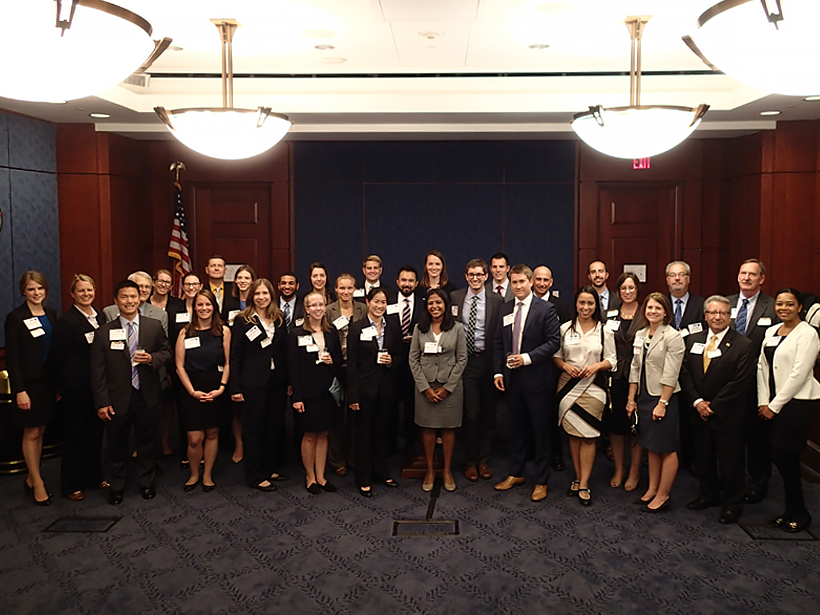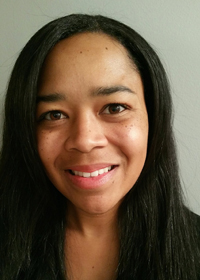The American Geophysical Union (AGU) is excited to introduce its 2015–2016 Congressional Science Fellows, Timia Crisp McClain and Michael Glotter. Timia and Michael began their fellowships in September and will work in congressional offices through August 2016.
AGU has supported fellows for the past 38 years, as they use their broad scientific background and their unique knowledge of issues such as climate, energy, and resource management to inform and guide policy makers on science issues. Through the fellowship program, which is administered by the American Association for the Advancement of Science (AAAS), fellows gain firsthand knowledge of the legislative process and explore career paths outside of academia. Although some fellows return to research following their time on the Hill, many stay on as full-time staffers or take on other policy-related roles at think tanks and executive agencies.
Timia Crisp McClain
Timia recently completed her Ph.D. in chemistry at the University of California, San Diego (UCSD). Her dissertation consisted of multiple field studies that analyzed the reactiveness of halogenated and acidic gases in the marine boundary layer of the atmosphere. In addition to her academic work, Timia worked with UCSD’s Scripps Institution of Oceanography in La Jolla, Calif., to create science exhibits, enhancing communication of current research to the general public. Timia believes that communicating science to a wide audience, including policy makers, is necessary for effective policies. Her passion for policy lies in environmental conservation and science education, and she believes that strong STEM (science, technology, engineering, mathematics) education “is essential not only for developing the future scientists of America, but also to create a more science-literate society.”
Michael Glotter
Michael received his Ph.D. in geophysics in June from the University of Chicago (UC). While at UC, Michael was able to create a unique doctoral program by taking courses in business and law alongside traditional science coursework. This interdisciplinary approach is important to him because of the varied interests and perspectives needed to solve complex problems like climate change. His dissertation topic, how climate change impacts the global food supply, aptly demonstrates his ability to connect science to societal issues. Michael aspires to work “at the intersection of academia and public policy and help decision makers adapt to new challenges from a changing world.”
AGU members interested in applying for next year’s AGU Congressional Science Fellowships should visit the AGU Science Policy website. Applications for the 2016–2017 term will open on 1 November 2015 and close on 1 February 2016.
—Alison Evans, AGU Public Affairs Intern; email: [email protected]
Citation: Evans, A. (2015), Meet the 2015–2016 Congressional Science Fellows, Eos, 96, doi:10.1029/2015EO036811. Published on 7 October 2015.
Text © 2015. The authors. CC BY-NC 3.0
Except where otherwise noted, images are subject to copyright. Any reuse without express permission from the copyright owner is prohibited.



